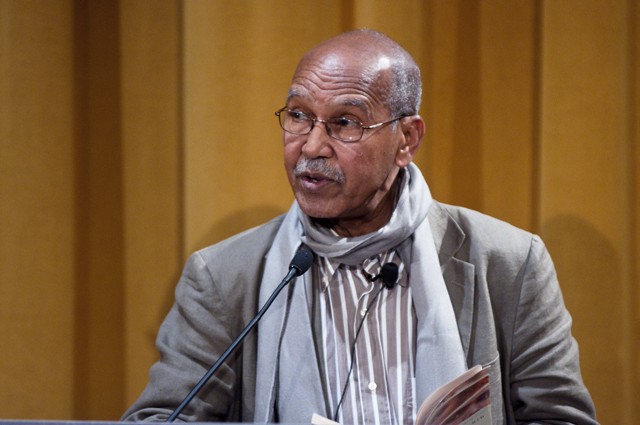Award-winning novelist, respected professor, Somali exile. Each of these phrases describes Nuruddin Farah, a visiting professor at the University of Minnesota.
Farah was born in Baidoa, Somalia in 1945 and lived there until moving to England in 1974 to complete his postgraduate degree.
After publishing his second novel, âÄúA Naked Needle,âÄù in England in 1976 he was advised not to return to Somalia, facing a potential 30 years in prison. In response to being exiled by the government, Farah published a trilogy of novels critical of the Somali dictatorship.
After the second and third novels in the trilogy were published, the Somali government passed a death sentence on Farah if he were to enter SomaliaâÄôs borders again. As a result, Farah spent years living in various countries in Africa.
âÄúI can deal with being exiled and my own neurosis in Africa,âÄù he said.
Farah enjoyed being in the places that were similar to Somalia, so he spent time in Uganda, Nigeria and
Ethiopia while trying to regain entry into his home country. He stayed there for the similar smells, more than anything, he said âÄî they offered him comfort.
In January of 1991 Somalia broke out into civil war, but Farah was still not allowed back until 1996, after striking a deal with Somali warlords. He said this was more because Somalia was in a state of âÄúgeneral chaosâÄù than because of his charges being forgiven.
Farah now calls South Africa his permanent home, but returns to Somalia every few years to do research or visit between writing
his novels.
Farah has published 10 novels throughout his career. He has written many more than have been published, he said, but those are only for his eyes.
In his books he is trying to send messages to readers, messages of peace, living with humility and the sacredness of gender equality, he said.
âÄúThe very simple message is coexistence and tolerance,âÄù he said.
Charles Sugnet, FarahâÄôs faculty host, said that despite FarahâÄôs incredible past he is not interested in playing a hero.
During FarahâÄôs time at the University this fall he is also going to use his interest in theater to put on a play, âÄúAntigone in Somalia.âÄù
âÄúHe is drawing Somalis out into the general public life,âÄù Sugnet said of FarahâÄôs play.
Farah was brought to the University as a Winton Chair, and will be teaching during the fall semesters of 2010, 2011 and 2012. This semester he is teaching one world literature course, working with high school students and teachers and doing public speeches and
book readings.
On Friday night Farah gave a packed audience in Cowles Auditorium four readings from his books. He easily joked with the crowds about having been the one to begin the large trend of Somalis moving to Minnesota as a result of his first trip to the University in 1988.
In the spring of 1989 Farah taught a University world literature class, and each of the roughly 25 students in that class went on to teach. They are currently teacing everything from high school English to college literature, Sugnet said.
FarahâÄôs next novel is scheduled to be published in fall 2011, but his real hope is for Somalia.
âÄúI have always fought dictatorship, no matter what form itâÄôs in,âÄù he said. âÄúI just hope we have reached the bottom and that Somalia can only go up and regain peace.âÄù

Image by Jason Kopp
Nuruddin Farah, the current College of Liberal Arts Winton Chair holder, reading selections from three of his many novels on Friday night in the Humphrey Institute on Campus.
Professor writes of hope for Somalia
Nuruddin Farah’s books emphasize peace, humility and equality.
Published October 12, 2010
0

